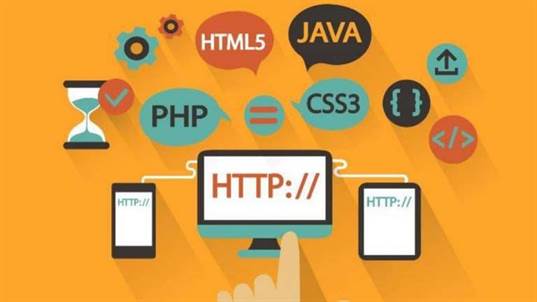When data is used to drive choices – be it in healthcare, finance, or regulation enforcement – moral concerns ensure that the algorithms and fashions don’t perpetuate discrimination or bias. With the huge quantities of data being collected every second, individuals’ privacy is in danger. Data ethics provides a guideline for maintaining the integrity and confidentiality of this data, guaranteeing that personal information isn’t misused. The company takes duty for personal data protection, offers transparent privacy policies, and offers users control over their data, allowing them to view, edit, obtain, and delete their data. Intelligent control presents one intriguing risk for the means forward for digital ethics and privateness expertise.

We need to empower you with the data and tools wanted to make knowledgeable decisions about your knowledge. Data ethics is an important subject that guides responsible and ethical practices in the collection, use, and administration of knowledge. Businesses should work to make certain that their algorithms and data practices are fair and equitable to all, and don’t inadvertently reinforce existing societal inequalities. Its privacy coverage underlines the rules of data minimization, on-device processing, person transparency and control.
Ai In Training: Innovations And Applications
These examples all contribute to mistrust or rejection of doubtless useful new technological options. What moral rules can we use to deal with the issues in applied sciences that improve biases, profiling, and inequality? This question has led to significant growth in interest in knowledge ethics over the last decade (Figures 1 and 2). And for this reason many countries at the moment are creating or adopting ethical ideas, standards, or tips. Data ethics refers to the ethical principles and tips that govern the gathering, storage and analysis of information.

The profitable implementation of data ethics ideas can construct trust and promote fairness, while negligence can result in significant consequences. There can only be a data move if the information origins have given their consent to the unrestricted use of it. When it involves the decision-makers, they should foster an environment where the moral use of knowledge with out the breach of individual privateness is paramount. As the digital age continues to evolve, the function of knowledge ethics in shaping a balanced, honest, and human-centric information ecosystem will solely turn out to be extra crucial. Raising knowledge literacy levels inside an organization also takes a strong data tradition. The guidelines of how we work and how we make selections have been rewritten in the digital age.
The Position Of Knowledge Governance In Ai: Sustaining Moral And Responsible Use Of Data
Building, deploying, and utilizing AI systems functionally and responsibly takes a firm understanding of information and how it’s used. Many applications focus too closely on tools and technology, failing to construct a foundational understanding of how data is produced, used, and managed by way of the business. So let’s cooperate to make data utilization within the digital world extra ethical and accountable.

This contains standardizing analytical phrases, proficiency ranges, and processes throughout the business. Consider adding information ethics to your staff assembly agenda and use this as a possibility to share and encourage good moral practices. In addition, inventive approaches to data ethics have emerged in analysis and academia, similar to utilizing data anonymization strategies to safeguard particular person privacy. Ethical concerns may be included into knowledge gathering and use by creating clear ethical principles and pointers.
The Pillars Of Information Governance: Guaranteeing Quality And Compliance In The Digital Age
Data governance offers the framework and processes, while accountability ensures that people and organizations are held responsible for adhering to knowledge governance rules, moral pointers, and legal requirements. Together, they contribute to maintaining information integrity, security, and moral requirements inside an organization. As makes use of of information and artificial intelligence proceed to develop, understanding the core parts of digital ethics in relation to this new technology turns into ever extra necessary.
If something goes incorrect, corresponding to a data breach or an AI system making a discriminatory choice, businesses should take duty and rectify the issue. Companies and institutions that adhere to good information ethics are extra transparent about their knowledge practices. This openness builds trust with clients, staff, and stakeholders, which is crucial for long-term success. To perceive why information ethics is important, we need to mirror on the important position knowledge performs in today’s society. It can form behaviors, influence decisions, and even outline the course of our lives.
Data ethics extends past authorized rights to encompass the broader societal implications of knowledge dealing with. It emphasizes the responsible and moral use of data to reduce harm, guarantee transparency about knowledge usage, and uphold individuals’ privacy rights. In a world where information has turn into a commodity, ethical concerns delve into the advanced internet of interconnected information and its potential impacts on individuals and society. It underscores the responsibility of both people and organizations to deal with information in a fashion that prioritizes ethical requirements, thereby mitigating adverse effects. In summary, information governance and accountability are intertwined ideas that ensure responsible information administration.
- Several methods should be taken into consideration by organizations to undertake knowledge ethics in the digital world.
- Accountability, openness, justice, secrecy, precision, legality, and hurt minimization are among the 7 information ethics principles.
- Good information literacy teaches individuals how to join the right information with the proper questions or uses of that information.
- Microsoft’s privateness coverage includes ideas like accountability, transparency, and person control, showcasing an moral method to knowledge administration.
Microsoft’s privacy policy contains principles like accountability, transparency, and person management, showcasing an ethical strategy to data administration. From C-suite executives to legislators to engineers, leaders throughout a broad vary of organizations and industries have a stake in creating sustainable, comprehensive insurance policies of digital ethics. Many citizen advocacy organizations are actively lobbying to help digital ethics and privateness know-how.
Responsible organizations put ethics entrance and center when using information and AI, a current trends report from Tableau indicated. They set circumstances that cultivate a sustainable surroundings for success—conditions that may assist establish and reaffirm people’s belief and confidence in digital applications repeatedly. They empower everybody in the group to understand company ethical insurance policies and practices when utilizing knowledge and AI. In doing so, folks throughout a corporation can work collectively to make a more trusted digital experience—one that’s more relevant and more inclusive for everyone.
These real-life instances underpin the critical necessity of prioritizing privateness and moral handling of data in the digital sphere. In conclusion, knowledge ethics is crucial for maintaining privateness, justice, openness, and belief in the utilization of information in the digital age. Data ethics is a burgeoning area that seeks to ensure the accountable and moral use of data. It involves considering the moral, authorized, and societal implications of data-driven choices. In an period marked by high-profile data breaches, algorithmic bias, and privateness concerns, it is imperative that individuals and organizations alike embrace knowledge ethics as a elementary principle.
Challenges In Implementing Information Ethics
For occasion, the ACLU has a complete plan in place to deal with violations of privateness related to new technologies, together with mass surveillance, office privateness violations, and medical and genetic privacy. Among different things, the ACLU is working to require warrants for regulation enforcement entry to electronic data, to unveil authorities surveillance practices, and to advertise technologies that create privacy safety. Governments play maybe probably the most overarching function in addressing questions of digital ethics and information privateness. Currently, although, rules differ from country to nation, usually because of clashing philosophies on digital ethics.
The variations among these initiatives appear to be associated to traditions, institutional preparations, and many other cultural and historic factors. Germany locations emphasis on developing autonomous autos and presents a quite complete view on ethics; Canada puts a stake on guiding authorities officials; Korea approaches questions through the prism of robots. In our upcoming examine, we intend to discover the explanations and rationale for various approaches that countries take. Data ethics is changing into increasingly important as organizations rely more on data analytics and artificial intelligence to drive decision-making. Machine learning, and deep studying for information science are going to rule the data-driven analytics world in this digital age.
However, the trouble of building trusted relationships comes plagued with a quantity of challenges. Data ethics refers to the moral and responsible use of information in varied contexts, similar to expertise, business, and research. As data turns into a more integral part of human existence and decision-making processes, understanding its moral implications becomes paramount. They are designing an information literacy framework to structure companywide and department-focused targets and initiatives for sustainable progress.
But more usually, a failure to develop a broad program of digital ethics will imply persevering with mistrust and suspicion on the part of residents towards government and enterprise. Organizations that ignore the question of digital ethics and knowledge privateness or deal with it on an advert hoc foundation risk wasting assets. They also can create inefficiencies in product improvement and advertising, which ultimately impacts earnings. The best resolution is to create clear protocols and a systematic, complete plan to mitigate risk that operationalizes AI ethics. By adhering to these rules, organizations can construct belief with their stakeholders, shield individual rights, and contribute to a more accountable and moral knowledge ecosystem.
Analogous to sealing a letter within an envelope, encryption safeguards private data as it traverses by way of digital networks. Anonymization, one other vital protective measure, includes stripping identifiable information from data sets to defend privateness. By prioritizing a privacy-first mindset and implementing robust information protection measures, organizations can considerably contribute to safeguarding private information safety. Will widespread adoption of emerging digital applied sciences such because the Internet of Things and Artificial Intelligence enhance people’s lives? The reply appears to be an easy “yes.” The constructive potential of data appears self-evident. Yet, this problem is being actively mentioned throughout worldwide summits and occasions.
Essential Principles Of Information Ethics
The debate over moral data harvesting and usage has occupied the public consciousness as of late, thanks largely to a few elements. The first is the advances in synthetic intelligence and network expertise that have fostered an astronomical progress in digital interconnection and data-producing units. From fitness ethical use of data trackers to city infrastructure, the usage of “smart” networked devices—otherwise often known as the Internet of Things (IoT)—has grown exponentially prior to now decade. A report from the Congressional Research Service estimates that the variety of active IoT gadgets will increase to 21.5 billion in 2025.


